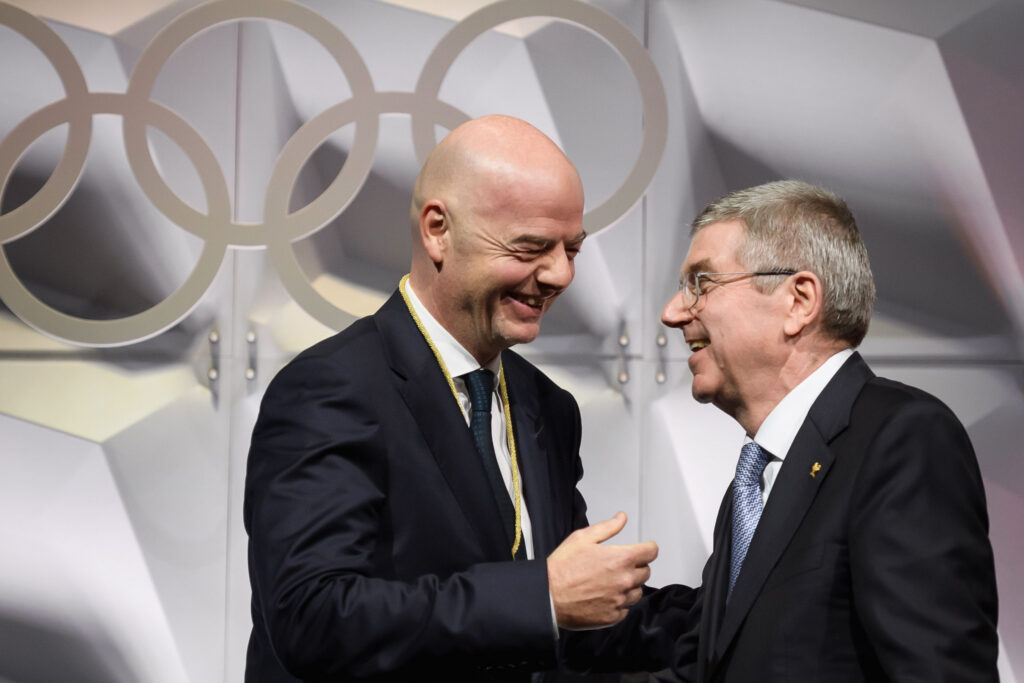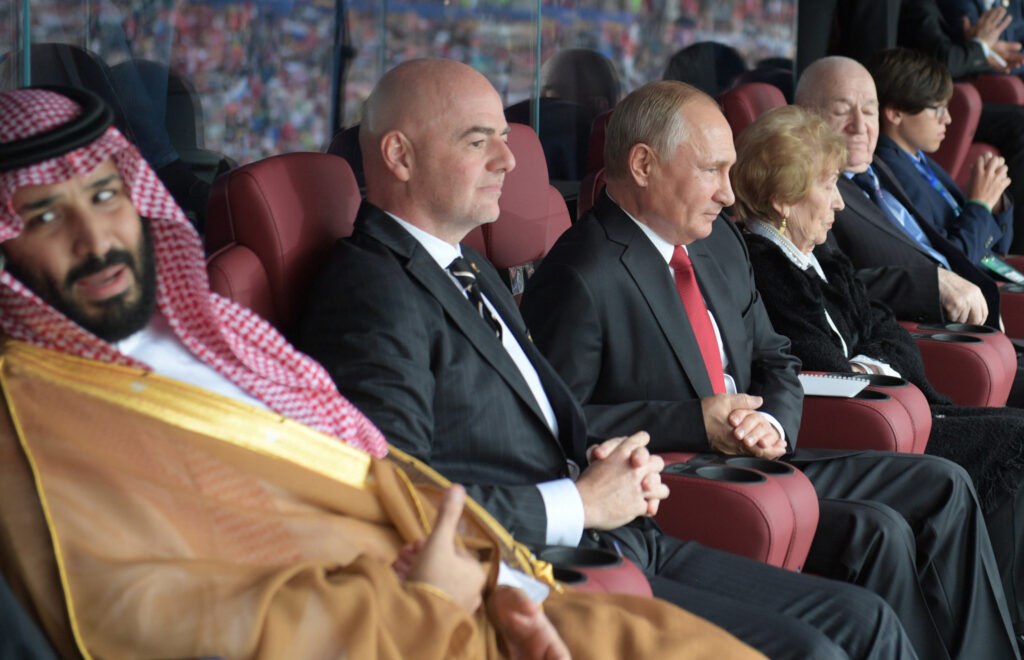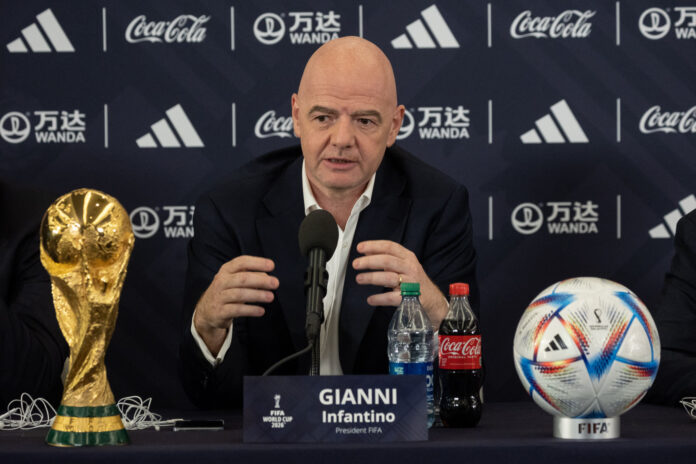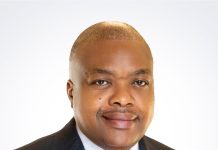Incumbent Gianni Infantino is the only candidate for next year’s FIFA Presidential election.
The Swiss official succeeded the disgraced Sepp Blatter in 2016 after winning a four-way race and was re-elected by acclamation in 2019.
He announced his intention to run for a fresh term at the FIFA Congress earlier this year and has been confirmed as the only candidate for the role after the passing of the deadline.
Infantino has been a member of the International Olympic Committee since 2020.
Ex-Switzerland footballer Ramon Vega had yesterday announced his intention to challenge Infantino, but FIFA said that “no other candidature has been submitted”.
National Federations must propose candidates for President.
Vega had previously attempted to stand in 2015 and 2019, but failed to secure sufficient backing.
The Presidential election at next year’s FIFA Congress in the Rwandan capital Kigali is scheduled for March 16.

Infantino has sought to distance himself from the FIFA era under predecessor Blatter, under whose leadership the governing body’s reputation was left in tatters after a series of corruption scandals and the disputed award of the 2018 and 2022 World Cups to Russia and Qatar, respectively.
Four of FIFA’s continental bodies in the Confederation of African Football, South American Football Confederation, Asian Football Confederation and Oceania Football Confederation all endorsed Infantino in the build-up to the deadline for submissions, although this would not bind each bloc’s members to vote in his favour.
Only Europe’s governing body UEFA and the Confederation of North, Central America and Caribbean Association Football are yet to publicly pledge their support for the incumbent.
Supporters say that Infantino has enhanced the global development of football.
He has overseen an expansion of FIFA’s flagship World Cup from 32 to 48 teams from 2026, with next year’s Women’s World Cup in Australia and New Zealand set to feature 32 countries, up from 24 in 2019.
Infantino had also planned to expand the FIFA Club World Cup, although that was hampered by the 2021 tournament being unable to take place in China due to COVID-19.
The Confederations Cup, viewed as a warm-up to the World Cup, has also been abolished under his watch.
However, his reign has featured a host of controversies, and the spotlight will be on FIFA for the upcoming World Cup in Qatar set to begin on Sunday (November 20), which is considered by some to be the most controversial sporting event of all time.
A letter signed earlier this month by Infantino and FIFA secretary general Fatma Samoura urging participating teams to “focus on the football” prompted an angry response from critics.
The build-up to the World Cup has dominated by concerns over Qatar’s labour laws, treatment of migrant workers and policies on homosexuality and women’s rights.
Qatari officials had pointed to labour reforms including a shift away from the kafala system and Infantino has admitted that that “not everything is perfect in Qatar” but argued that “exemplary” work had been conducted.
However, Qatar has more recently criticised coverage of the tournament, with Emir Sheikh Tamim bin Hamad al-Thani claiming that the country had been “subjected to an unprecedented campaign”.

The Qatar 2022 Supreme Committee for Delivery and Legacy has also urged “everyone to respect our culture and traditions”.
The tournament has been moved from its usual slot in the northern hemisphere’s summer for the first time due to Qatar’s heat and humidity, a move which as caused havoc with the club football calendar and was only agreed upon after the Gulf state was awarded hosting rights.
Blatter recently conceded that awarding the World Cup to Qatar was a “mistake” and blamed it on former UEFA President Michel Platini, another official whose football administration career ended in disgrace.
Blatter has been a critic of Infantino’s, questioning his decision to move from Switzerland to Doha and plans to expand major tournaments.
Infantino has also received criticism for his relationship with Russia and Saudi Arabia, two countries whose regimes have faced regular accusations of sports washing.
Russia held the World Cup in 2018, and a Saudi bid for the 2030 edition alongside Egypt and Greece has been mooted.
The FIFA President appears to enjoy a friendly relationship with Crown Prince Mohammed bin Salman Al Saud, watching Ukrainian Oleksandr Usyk defended his heavyweight boxing world titles against Briton Anthony Joshua in Jeddah earlier this year.
The pair were joined by Russian President Vladimir Putin for the opening match of the 2018 World Cup.
Infantino claimed after the 2018 World Cup “changed the perception of the world towards Russia”, and was awarded the Order of Friendship in 2019.
Earlier this year, Russia was removed from Qatar 2022 World Cup qualifying and had the involvement of its national teams and clubs at all FIFA and UEFA competitions suspended.
FIFA had the day prior been criticised for “first measures” which included Russia being unable to stage international football matches in the country but would have permitted them to play a World Cup qualifying playoff against Poland under a neutral name and flag.
Poland and other potential opponents Sweden and the Czech Republic said that they would refuse to play any match against a Russian team.
FIFA and UEFA have also taken the unusual stance of permitting Belarus to continue playing matches in its competitions while Russia are effectively banned, albeit with home matches played at neutral venues.
The IOC’s recommendations on the non-participation of athletes and officials in response to the war in Ukraine cover Russia and Belarus.
The Football Union of Russia was also permitted to take part in the FIFA Congress earlier in the year, and the men’s national team played its first match since the invasion with a friendly away to Kyrgyzstan in September.
Further matches against Tajikistan and Uzbekistan are scheduled this month.
Infantino said at the G20 summit in Bali this week that he hopes the World Cup can be a “positive trigger” to bring an end to the war in Ukraine, and urged a “temporary ceasefire” for the tournament’s duration.
Infantino was subject to a personal investigation by the FIFA Ethics Committee in 2016 over claims of wrongdoing related to flights and human-resources matters, but was cleared.
A leaked memo had claimed Infantino made a number of private purchases at FIFA’s expense, including a fitness machine, mattresses, a tuxedo, flowers and football boots.
The investigatory chamber of the Ethics Committee also both opened and closed an investigation into his conduct in 2020, amid a criminal investigation into alleged undocumented meetings between Infantino and former Swiss Attorney General Michael Lauber.
Infantino has always denied any wrongdoing, and said in 2020 that the meetings were “in no way secret and most certainly not illegal”.
Proposed biennial men’s and Women’s World Cups have been another theme of Infantino’s Presidency, although they now appear to be on the back burner having sought to distance himself from the idea at the Congress by stating “FIFA has not proposed a biennial World Cup”.
The idea was strongly opposed by UEFA and CONMEBOL, who have strengthened ties with the opening of an office in London by the latter and the creation of a Finalissima between the men’s and women’s champions of both continents.
Infantino had claimed that a World Cup every two years would still retain its “magic”.
His comments in January that “we need to find ways to include the whole world to give hope to Africans so that they don’t need to cross the Mediterranean in order to find maybe a better life but, more probably, death in the sea” were widely criticised, although he later said they had been “misinterpreted and taken out of context”.
However, Infantino’s Presidency from 2016 to 2019 is not considered a full term as Blatter won the 2015 election before stepping down, which means he could remain in the role until as late as 2031.







































